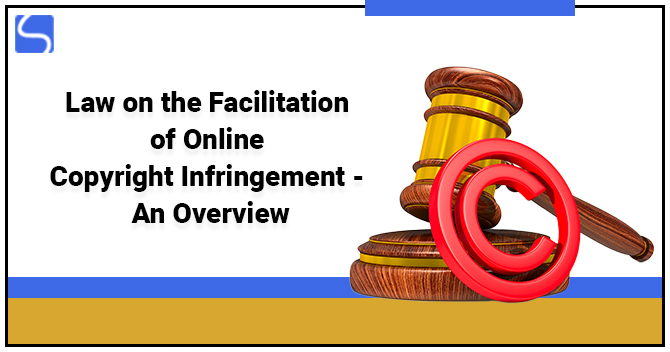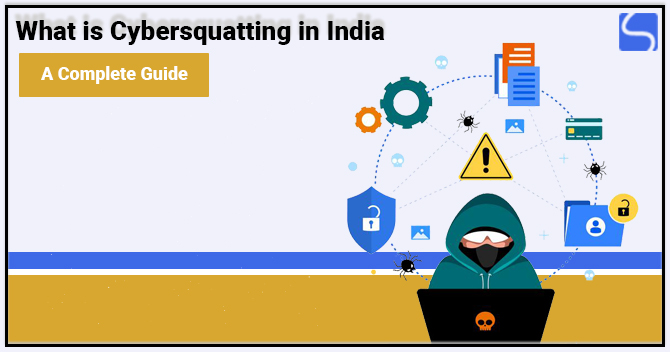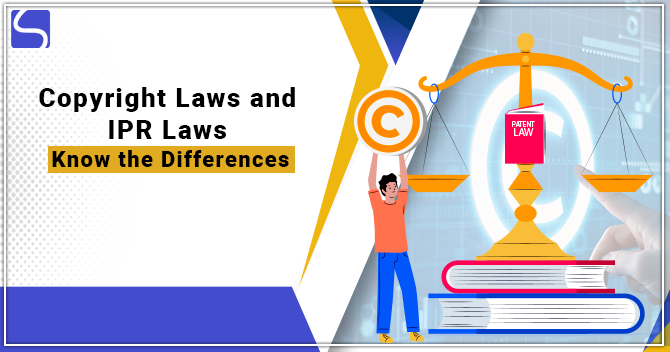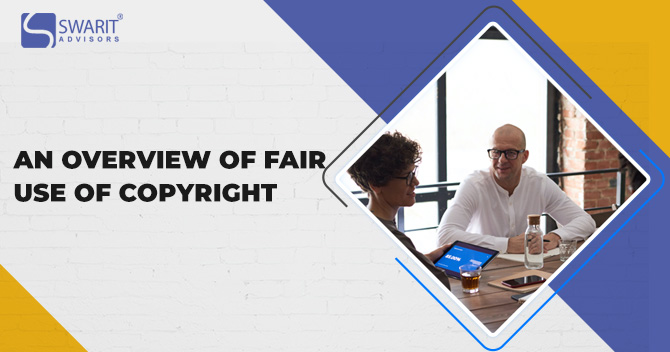Law on the Facilitation of Online Copyright Infringement – An Overview

Karan Singh | Updated: Jul 30, 2021 | Category: Copyright
In this digital period, the internet has become vital for Copyright Protection. Copyright Infringement is a significant threat in the area of cybersecurity. It goes afar, especially with the developing or emerging technology by content sharing whereby one can use the unique established and safeguarded work for one individual benefit. However, to protect unique or original work, it is mandatory to get Copyright Registration of the actual work, and then only the real owner of the work can avail of the benefits of online Copyright Registration. In the past, the Infringement of Copyright was difficult as most of the copyrighted work were offline. But, the condition is different in the present condition as humans have developed various methods to break the law. The use of content by any illegal persons other than the actual owner is an offence and against the purpose of IP (Intellectual Property), thereby affecting the online society. In this write-up, we discuss the law on the facilitation of Online Copyright Infringement.
Table of Contents
What is Copyright and Copyright Infringement?
Before we go through the law on the facilitation of Online Copyright Infringement, it is necessary to know the meaning of Copyright and Copyright Infringement. Copyright is a type of IP regulated or managed under the Copyright Act, 1957[1]. The owner has the right to change, show, reproduce, get copies, and adapt their actual work. The main intention of the Copyright Act is to safeguard the real works of authorship. Copyright Act, 1957 (Section 13) states that the Copyright prevails in actual musical, literary, dramatic works, cinematography films & sound recording. Therefore, it means that Copyright safeguards the expression of ideas and not the idea as in the case of Patents. Section 14 of the Copyright Act says that the bunch of rights that are conferred on the Copyright owner can be exercised only the asset of duly registered & licensed as per the Copyright Act.
Copyright Infringement takes place only when a copyrighted work is distributed, showed, copied, or uses work with the approval of the actual Copyright owner. Following are some grounds for the actual owner to establish a Copyright Infringement by any individual:
- Proprietorship of an appropriate Copyright;
- Violation of their exclusive rights under the legal provisions.
According to Section 51 of the Act, it tells the example when Copyright is violated, and it includes doing an act by one who is not certified by the actual owner with the right to do or allow any place for the profit of Copyright Infringement.
Online Copyright Infringement by Intermediaries
The Copyright Act neither defines online intermediaries nor any special protection except that described under Section 52 of the Act. Also, it doesn’t differentiate between virtual and actual physical space. Intermediaries are defined under the IT Act, 2000 that states any individual who, on behalf of another individual store, receives or transfers that record or deliver any services regarding that record. It includes significant websites such as Facebook, Google, Youtube, etc.
The leasing case on Online Copyright Infringement by intermediaries was mentioned in Super Cassettes Industries Ltd. Vs MyspaceInc. (2015), wherein the court set apart the order by the Single Judge in the case of Myspace Inc. Vs Super Cassettes Industries (2011). It was Super Cassettes (referred to as the applicant or petitioner) suit to claim enduring injunction against Myspace (referred to as the defendant or the appellant) from violating and exploiting the IPRs, majorly the Copyright owned in cinematograph films, literary, and musical work, and it has claimed damages for such exploitation.
Judgment on this case:
The court held that there is no direct infringement by Myspace, and the finding of the Single Judge of secondary infringement is set aside. The following was concluded:
- Section 51 (a)(ii) of the Copyright Act, in the case of online intermediaries, tells actual knowledge and not general awareness. Moreover, to impose liability on a mediator condition described under Section 79 of the IT Act should be fulfilled;
- Section 79 & 81 of the IT Act and Section 51 (a)(ii) of the Copyright Act should be read together;
- In the case of online intermediaries, assistance should be specific and show actual content which is violated by the other.
The Condition of Online Copyright Infringement in Other Jurisdiction
With the increasing use of the internet use, the concerns regarding the person’s right to privacy, reputation and Copyright have grown. Most of the legitimate system worldwide has been facing the complexity to cope with the speed of technology, thereby safeguarding the owner’s interest. The beginning of the internet has led to discussion even in the global convention & on the present agreements framed under the Berne Convention, which furnishes for the protection of artistic & literary works and the Rome Convention, which provides for the protection of producers & performers of broadcasting organisations. These conventions & treaties are established to direct framing the legitimate domestic system towards safeguarding the Copyright of proprietorships, thereby keeping balance with the online economy and online intermediaries’ rights.
Government Policy as per the TRIPS
NIPRP (National Intellectual Property Rights Policy), 2016 is adopted by GOI to encourage innovation & creativity and appreciate the value of IPRs in economic development nations. Objective one of the Policy tells that the awareness of the social-cultural and economic benefits of Intellectual Property Rights by introducing studies in student curriculum to know the importance of Intellectual Property Rights and how the violation of the IPRs wouldn’t only impact the owner but also the country’s economy. The policy tells “Pirated Copyright Goods” in consonance with Article 51 of the TRIPS Agreement, which states that “Goods which are copied without the approval of the owner duly certified by the right holder in the nation of production and which are made indirectly or directly from an article where the making of that copy would have constituted a Copyright Infringement or a related right under the country’s law of importation”.
Conclusion
The purpose of Copyright Law is to safeguard the interest of the legitimate owner and allow them the liberty to publish anything. In a democratic nation, the expression of the holder needs to be upheld, safeguarded, appreciated, and given value; otherwise, the complete essence of democracy will lose its value in the public’s vision. Therefore, with the beginning of technology, India requires to endeavour to adapt its present laws and execute policy industriously to safeguard the owner from online Copyright Infringement. To males sure free slow of opinion, expression, and speech among individuals in the digital world, it’s time to execute robust policy or digital Copyright Protection Law.
Read our article:How Copyright Registration is Beneficial in India?














